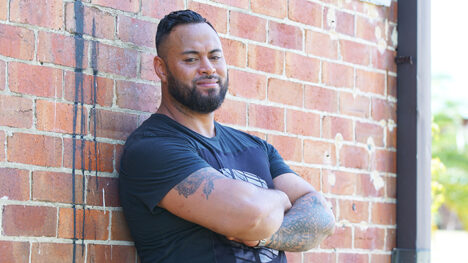
I have an acutely vivid memory which triggered this article.
It was a wet day in London in the winter of 2002. My 145kg frame was squished in the front seat of a tiny blue Fiat Punto with two colleagues in the parking lot of a Burger King.
At some point in our wait for another colleague to arrive with lunch, a distinctive scent invaded our very confined space. Pritesh, my significantly smaller colleague who was in the back seat with his earphones on, had removed a small foil package from his pocket and proceeded to smoke heroin. The driver, who was his dealer, proceeded to drop the windows to let the scent out and the cold air in. It was just another casual lunch break.
The disinterest I had to someone using an illegal substance like heroin in that parking lot seemed to me no different to the governmental and corporate indifference to systematic opioid over-prescription that at the time was on the rise. Fast forward nearly 20 years, and the toll of corporate drug pushing on society is finally revealing itself.

(Credit: Towfiqu Barbhuiya)
In the US, an average of 128 people die every day from opioid overdose.1 In Australia, 882 died in 2021 alone:2 a number that is far smaller but no less sobering. That large pharmaceutical companies have been complicit in facilitating what has become a global epidemic is highlighted by the fact that according to a report published by the Penington Institute, 3 million Australians are on prescription opioids.3 The same report revealed 2022 marks the sixth consecutive year that over 2000 Australians have died from an overdose.
Asia has its own looming crisis with prescription meds like Tramadol being smuggled and sold without any oversight, and there is mounting evidence that the illegal sales of synthetic heroin are used to finance terror outfits like Boko Haram and ISIS. If you’ve watched the Netflix series Narcos, you would recognise a pattern there, but that’s an entirely different story for another time.
Not everyone struggling with substance abuse shoots up in a dark alley, or from the back seat of a car. Neither are they all procuring their fix illegally. A problem currently facing many families is prescription misuse. As the term implies, prescription misuse involves but is not isolated to: taking someone else’s medicine; taking medicine to get high; mixing medicine with alcohol or other substances; or using medicine in a way other than prescribed. Two years ago, nearly 3 million people between the ages of 12 and 25 reported misusing prescription pain medications. There is no need for them to purchase the narcotic from a drug dealer, as studies have revealed that more than 50 per cent of those who obtain the medication did so from either a friend or a relative.
I am old enough to remember Nancy Reagan, the former first lady and wife to US President Ronald Reagan, telling us to “Just Say No”, back in the mid-’80s. At the time, America was being ravaged by another drug epidemic, partly self-inflicted by the same corporate greed and gluttony that preceded our current situation. Back then, crack cocaine was the problem, as nearly 6 million Americans were daily users. Substantial amounts of money was budgeted for another “war on drugs”, educating young people on the dangers of drug use and substance abuse, but most of it was used in the pursuit, prosecution and incarceration of hundreds of thousands of young men and women who needed help, not the long arm of the law.
Less than a generation later we saw doctors “strongly recommending” synthetic heroin to their patients for maladies ranging from mild backaches to post-cancer treatment. Some doctors surely had pure intentions, but it’s difficult to really know how many truly understood the risks. As families and neighbourhoods today are being ravished by this man-made plague, crying out for help, the cynic in me is asking: whatever happened to “Just Say No”?
In this instance, cynicism is a pleasure that can only be enjoyed by the cold-hearted. The fallout from this crisis has placed the burden of recovery on ill-prepared communities and struggling families. Street dwellers, people who may be forced to sleep in their cars, and yes, even substance abusers are all members of our society. Before we turn and walk the other way, we should all remember: it could have been me in that position. Not everyone in such circumstances has made the choice to be there. Once again, organisations that always respond to crises have stepped into the gap. Churches, non-profits and individuals have all been finding ways to remedy a problem they did not create.
One such church in Connecticut, USA, had the problem literally dropped on their doorstep. Pastor Rochelle Stackhouse had no choice but to become part of the solution when someone addicted to opioids overdosed at the entrance to her church. In an article for Christian Century she wrote that “The challenge for all of us in this ministry comes in taking seriously Jesus’ model of reaching out to people we might fear to touch. People who are addicted to drugs certainly fit the category of modern lepers.”4 Realising they were unprepared, they took it upon themselves to get trained for the role thrusted on them. Good Samaritans everywhere have been trying their best to put their communities back together one life at a time.

(Credit: Getty Images)
While it would be imprecise to place the blame squarely on the shoulders of pharmaceutical companies for the hundreds of people who die daily from opioid overdoses, it would also be equally disingenuous to exonerate them for the role they have played in making opioid dependency an epidemic. “Get in the Swing with Oxycontin” was only part of the promotional drive led by Purdue Pharma and its international arm MundiPharma to recruit doctors to misinform the public about the dangers of the highly addictive synthetic heroin, and ultimately incentivising its widespread distribution.5 This was happening right at the time I was sitting in that parking lot watching my colleague get his daily dosage, albeit from the more illegal and much cheaper source.
My food eventually did arrive and this other colleague promptly joined Pritesh in the back seat enjoying his heroin. His story, however, did not end well. A week later when he never arrived for work, we were informed he had been found dead from an apparent overdose in his apartment. Such is the crisis many communities are facing now.
From the latest superfoods to the perfect workout, juice cleanses to gym classes – everyone has an opinion. Being healthy doesn’t have to be so hard.
Visit hopeoffer.com/health to begin a free, online series, where you’ll receive expert advice to give you an overview of the essentials of good health, get practical tips to help you feel good right now, and set up positive habits your future self will thank you for!
Nigel Byng is a freelance writer based in West Palm Beach, Florida
1. Understanding the Epidemic: cdc.gov/drugoverdose/epidemic/index.html
2. The Aussie problem: Australia’s Annual Overdose Report 2021: penington.org.au/publications/australias-annual-overdose-report-2021/
3. Surging prescriptions, deaths: Australia faces opioid crisis: abcnews.go.com/Health/wireStory/ australia-familiar-grim-path-opioid-crisis-65400370
4. When the opioid crisis shows up at our church’s doorstep: christiancentury.org/article/first-person/ when-opioid-crisis-shows-our-church-s-doorstep
5. The Promotion and Marketing of OxyContin: Commercial Triumph, Public Health Tragedy: ncbi. nlm.nih.gov/pmc/articles/PMC2622774/









